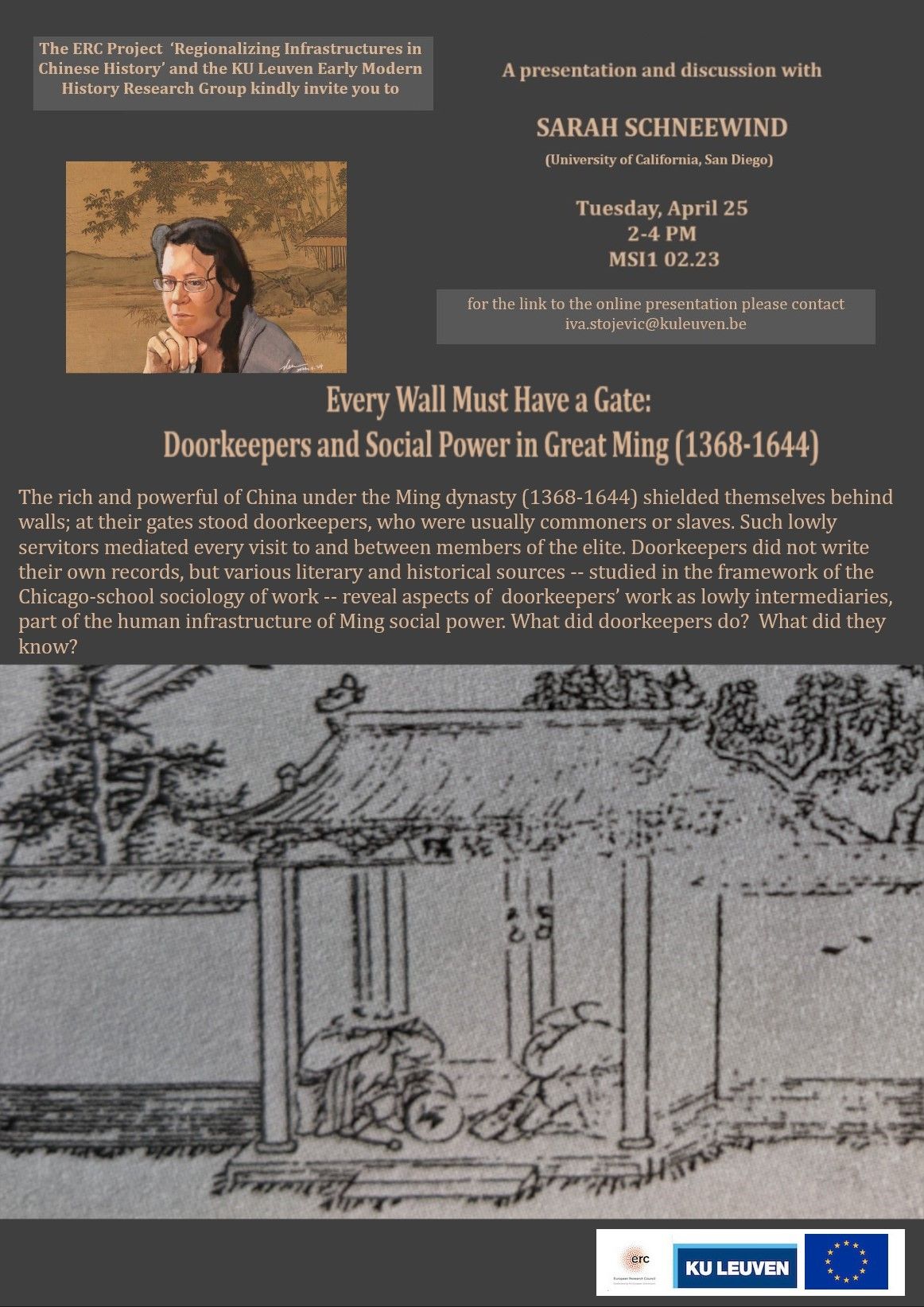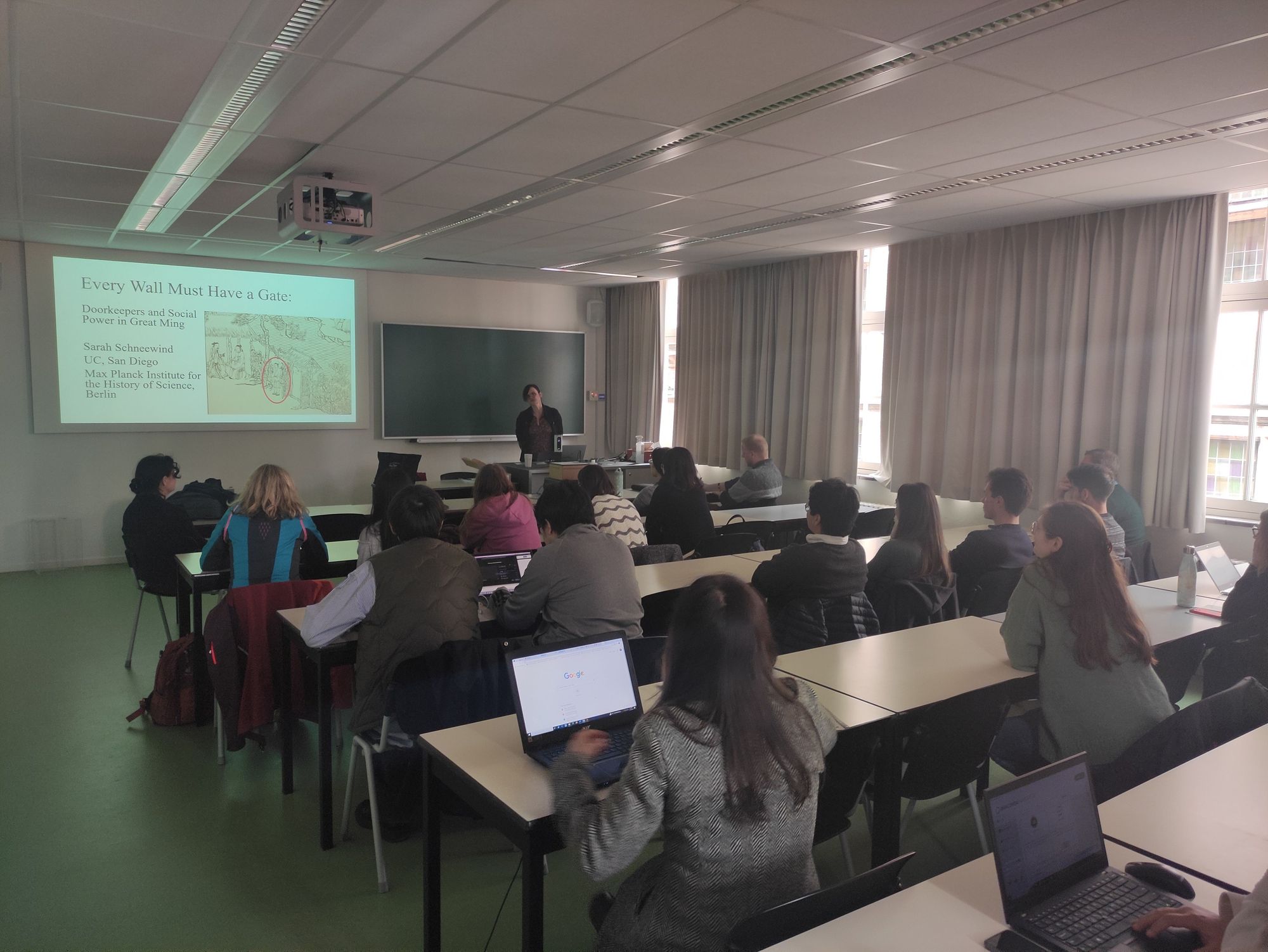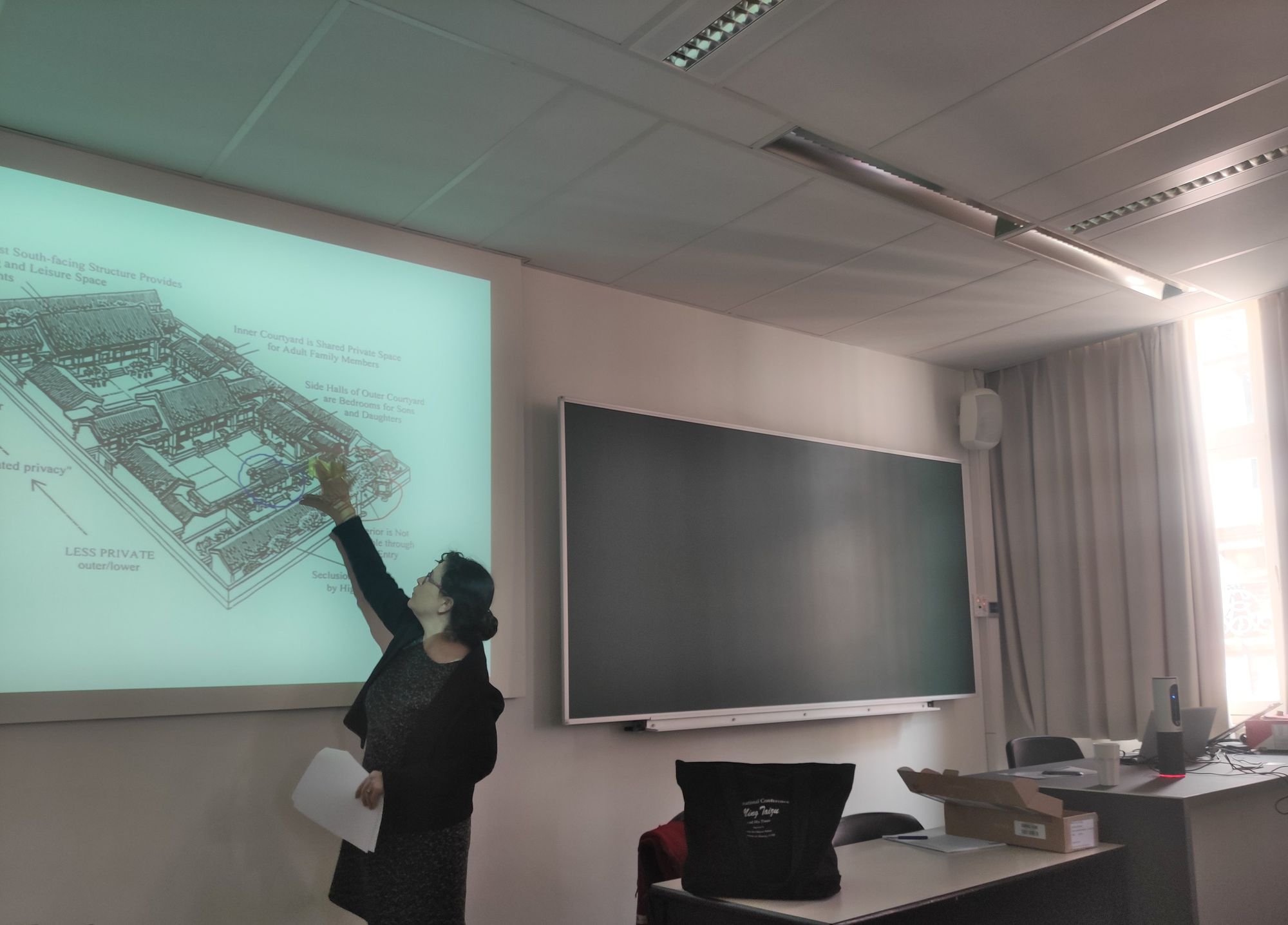
The ERC Project ‘Regionalizing Infrastructure in Chinese History’ and the KU Leuven Early Modern History Research Group organized a presentation and discussion with Prof. Sarah Schneewind. The talk, titled Every Wall Must Have a Gate: Doorkeepers and Social Power in Great Ming (1368-1644), took place on Tuesday April 25, in the MSI1 02.23 at 2 PM.

Sarah Schneewind graduated from Cornell in 1986, Yale with an MA in 1988, and Columbia with a PhD in 1999. She is currently Professor of History at the University of California, San Diego. She has authored five books: Community Schools and the State in Ming China, A Tale of Two Melons: Emperor and Subject in Ming China, Shrines to Living Men in the Ming Political Cosmos, An Outline History of East Asia to 1200, and the forthcoming The Social Drama of Daily Work: A Manual for Historians. She has served as President of the Society for Ming Studies, and runs a website called "The Ming History English Translation Project." . She has also developed a digital tool called The Late Imperial Primer Literacy Sieve (http://ctext.org/tools/literacy-sieve).

Every Wall Must Have a Gate: Doorkeepers and Social Power in Great Ming (1368-1644): The rich and powerful of China under the Ming dynasty (1368-1644) shielded themselves behind walls; at their gates stood doorkeepers, who were usually commoners or slaves. Such lowly servitors mediated every visit to and between members of the elite. Doorkeepers did not write their own records, but various literary and historical sources - studied in the framework of the Chicago-school sociology of work - reveal aspects of doorkeepers’ work as lowly intermediaries, part of the human infrastructure of Ming social power. What did doorkeepers do? What did they know?